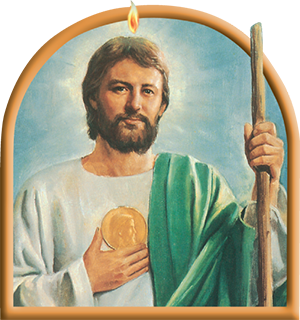What is fasting and why do we do it?
AS VOLUNTARY ABSTINENCE FROM FOOD, fasting symbolizes the reality that we are more than our physical drives. Not that eating is a bad thing, but any instinct--aggression, self-protection, or sexuality, for instance--can be distorted to ends destructive to oneself and one's relationships. Fasting serves as a means to both concrete and symbolic purification.
With roots deep in scripture and Christian tradition, the practice of fasting is essentially a penitential practice, but don't let that scare you. Like any penitential practice, fasting expresses an interior conversion, a change of heart and mind toward the good. Fasting bridges the gap between one's former attitude and a new way of looking at things.
Catholics encounter the call to fast during Lent, on Ash Wednesday and Good Friday. Abstinence from meat--a form of fasting--is also practiced on the Fridays of Lent.
Like prayer and charity, the other "disciplines" of Lent, fasting prepares Christians for Easter by joining them more closely to the life, death, and Resurrection of Jesus. Fasting draws them anew into the sacrificial and reconciling love of Christ and helps to remove all that separates them from God and love of their neighbor.
Fasting can also be a form of noncooperation with evil. In the story of Jesus in the desert (Matt. 4:1-11), Jesus fasts for 40 days, and at the end resists the temptation to break his fast, test God, and assume worldly power.
Fasting also shows solidarity with others who are suffering. By voluntarily entering into the experience of suffering, one identifies with those who suffer involuntarily, while making a statement that they are not alone or forgotten. Fasting can draw attention to others who are suffering and persuade people to help to relieve that suffering and maybe even find a solution to it.
Taking on the suffering of others models the suffering of the world Jesus takes on--I suffer with you because Jesus suffers with us and wants to redeem and relieve that suffering.
But perhaps the last word belongs to Isaiah 58:6-7, 10. "This is the fast that pleases me," God says through the prophet: "To break unjust fetters, to let the oppressed go free, to share your bread with the hungry, and shelter the homeless poor. If you do away with the yoke, the clenched fist, the wicked word, if you give bread to the hungry and relief to the oppressed, your light will rise in the darkness."
During Lent, fasting invites Catholics anew into the lifegiving, reconciling, and compassionate way of Jesus.
Joel Schorn is coauthor of Faith Interrupted: A Conversation with Alienated Catholics, forthcoming from Loyola Press.
